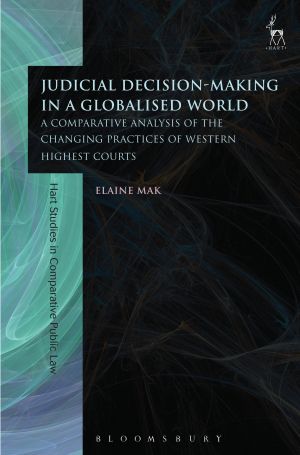
The device(s) you use to access the eBook content must be authorized with an Adobe ID before you download the product otherwise it will fail to register correctly.
For further information see https://www.wildy.com/ebook-formats
Once the order is confirmed an automated e-mail will be sent to you to allow you to download the eBook.
All eBooks are supplied firm sale and cannot be returned. If you believe there is a fault with your eBook then contact us on ebooks@wildy.com and we will help in resolving the issue. This does not affect your statutory rights.
Why do judges study legal sources that originated outside their own national legal system, and how do they use arguments from these sources in deciding domestic cases? Based on interviews with judges, this book presents the inside story of how judges engage with international and comparative law in the highest courts of the United Kingdom, Canada, the United States, France and the Netherlands.
A comparative analysis of the views and experiences of the judges clarifies how the decision-making of these Western courts has developed in light of the internationalisation of law and the increased opportunities for transnational judicial communication. While the qualitative analysis reveals the motives that judges claim for using foreign law and the influence of 'globalist' and 'localist' approaches to judging, the author also finds suggestions of a convergence of practices between the courts that are the subject of this study.
This empirical analysis is complemented by a constitutional-theoretical inquiry into the procedural and substantive factors of legal evolution, which enable or constrain the development and possible convergence of highest courts' practices. The two strands of the analysis are connected in a final contextual reflection on the future development of the role of Western highest courts.